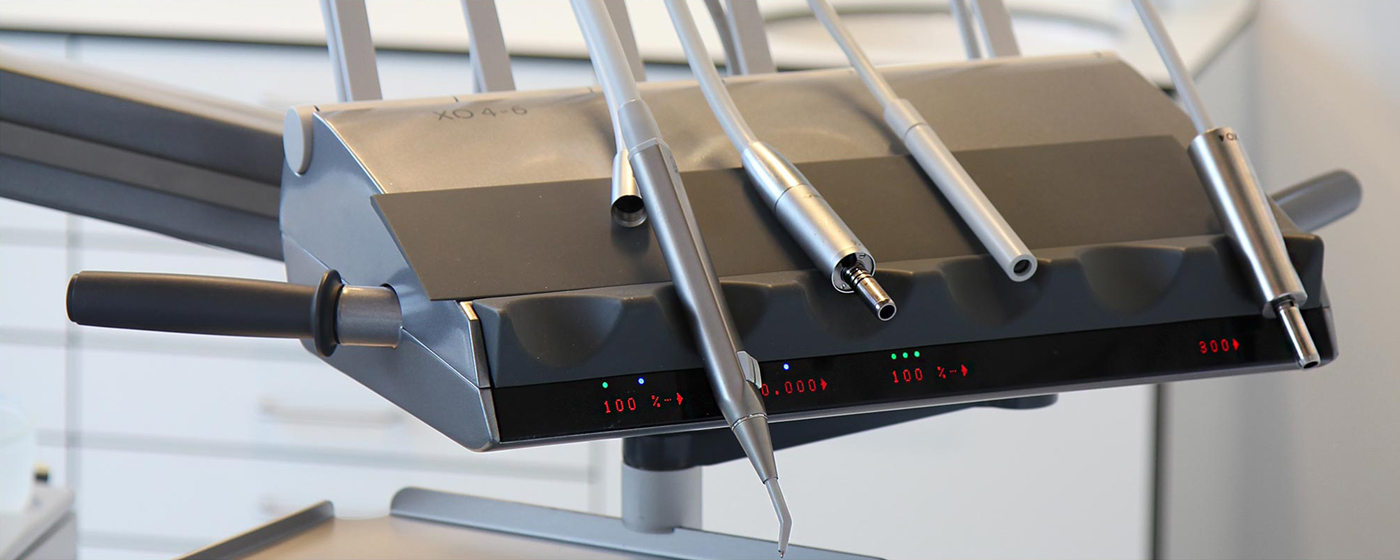
What sort of treatment?
Gingivitis
With gingivitis or inflammation of the gums, the underlying bone is not affected. Treatment usually consists of:
- thorough disinfection of the teeth
- improving daily oral hygiene
Number of appointments: normally 2
The teeth are disinfected using ultrasound and/or curettes. This treatment is usually carried out under local anesthesia.
You experience little or no pain or discomfort. Some patients have excessively sensitive teeth which usually disappears.
Aftercare: we advise you to use an electric toothbrush and tools for interdental oral hygiene, such as dental floss, triangular toothpicks and small brushes. During your aftercare appointments, we assess the effects on your daily oral hygiene. We also help you to give (and keep giving) it the attention it deserves. This is essential for preventing gingivitis in the future.
Periodontitis
If the underlying bone is also affected, you have periodontitis. In most cases, treatment again involves a thorough disinfection of the teeth, using ultrasound and/or curettes, under local anesthesia.
Number of appointments: 2 to 4, depending on the severity of the periodontitis
If the infection is very deep-seated, we will separate the gums from the teeth through a local surgical procedure. The roots of the teeth can then be reached to be disinfected. If there is any discomfort, an analgesic will help (ibuprofen or paracetamol).
If sutures are inserted, we recommend using a mouthwash (Chlorhexidine) until the sutures are removed.
Aftercare: as with gingivitis, we will help you to improve your oral hygiene. Aftercare measures will be needed throughout your life to keep the infection under control and to limit the risk of further bone loss. We will adjust the interval between your aftercare appointments to suit your particular situation.
